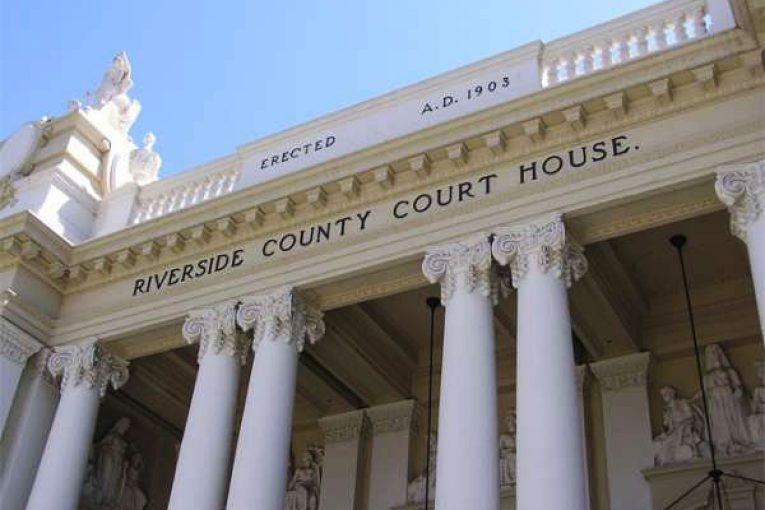

By Veronica Miller and Tommy Nguyen
RIVERSIDE, CA – Detectives testified in a series of preliminary hearings here this week in Riverside County Superior Court for four people charged with murder.
Abraham Fregoso, Jr., Aaron Bernal, Adilene Castaneda, and Magana Rios are being charged with murder for a double homicide that occurred in 2017. There were also two other codefendants, Eric Rios and Jesus Ruiz, Jr., who were charged for being accessories after the fact and pleaded guilty.
Detective Carlos Mendoza was questioned about recordings that he had watched of police interviews of the defendants.
Mendoza said Fregoso, using the assistance from two of his friends, had moved the bodies of the victims from their original spot in an attempt to make sure that the police would not be able to find them. The victims had been placed in containers to prevent them from being found. 
The officer said the female victim had been chopped up and folded. Bones of the victims had also been shredded and broken so that they could not be found. The victims had also been buried with chemicals so it would remove their flesh.
A specific cause of death was not discovered for the female victim. The male victim’s cause of death was from being punched in the face, said the detective, adding he learned the male victim was supposed to have just been beaten up, though he had ended up dying.
After moving the bodies, the defendants had burned down the vehicle used to move the bodies in an attempt to be able to cover up any evidence, said Mendoza.
Mendoza added the bodies had been moved from their original site of burial after one of the defendants got a tip from an unidentified woman who works for the district attorney. This allowed for them to be able to move the bodies before the detectives were able to find them.
The female victim had been connected to Fregoso, explained Mendoza—they had dated for about three years. He also claimed that she was “one of his little b**ches, and Mendoza believed that meant she had worked with him to transport narcotics.
Another investigator discussed footage of the female victim; the surveillance footage from a storage company showed when she had left work, which was the last time that she was seen on footage.
Police said they also had records from her phone to be able to find the last known location of her phone. They were able to track her going to the male victim’s house after leaving work. From his house her phone was found going from Rios and Castaneda’s house to Bernal’s house, providing further evidence they were involved.
Before making the ruling, Judge Samuel Diaz granted Bernal’s private attorney’s request to respond to the prosecution’s arguments.
Defense counsel claimed that most evidence regarding Bernal’s involvement, in this case, is “circumstantial,” noting that there is nothing that shows Bernal’s “intent to kill.”
The attorney then revisited the testimonies and said that there is no proof that ties Bernal to the codefendants’ effort of getting rid of the evidence, or that the car which contained the victims’ bodies belonged to Bernal.
The defense discredited several statements of Castaneda and investigator Mendoza as hearsay and that he sees “no inference drawn in favor of Mr. Bernal,” requesting the judge dismiss all the charges against Bernal because of his lack of participation in the murder.
Judge Diaz responded that those uncorroborated testimonies mentioned can be used by the court to “hold orders and draw reasonable inferences from the circumstantial evidence,” noting, “the court cannot speculate.”
Trial proceedings are expected to start March 17.
